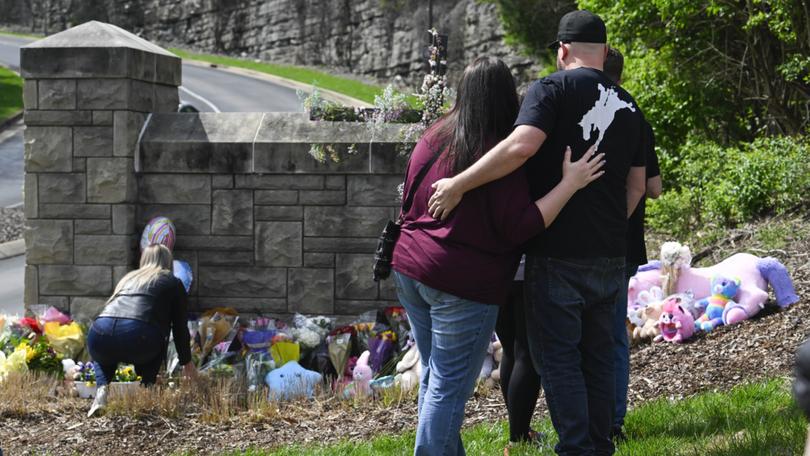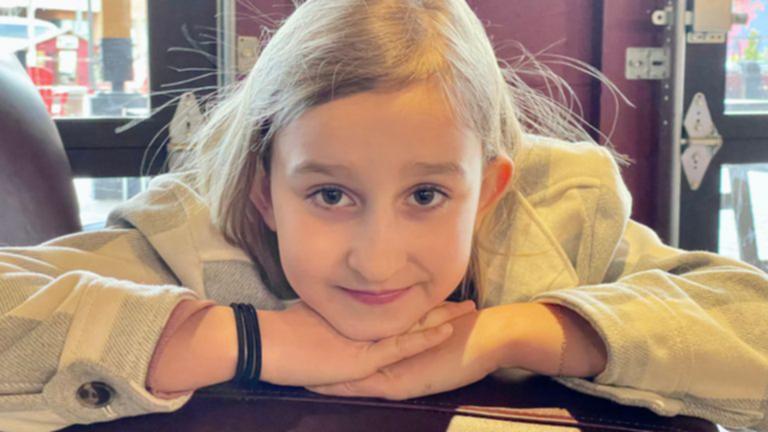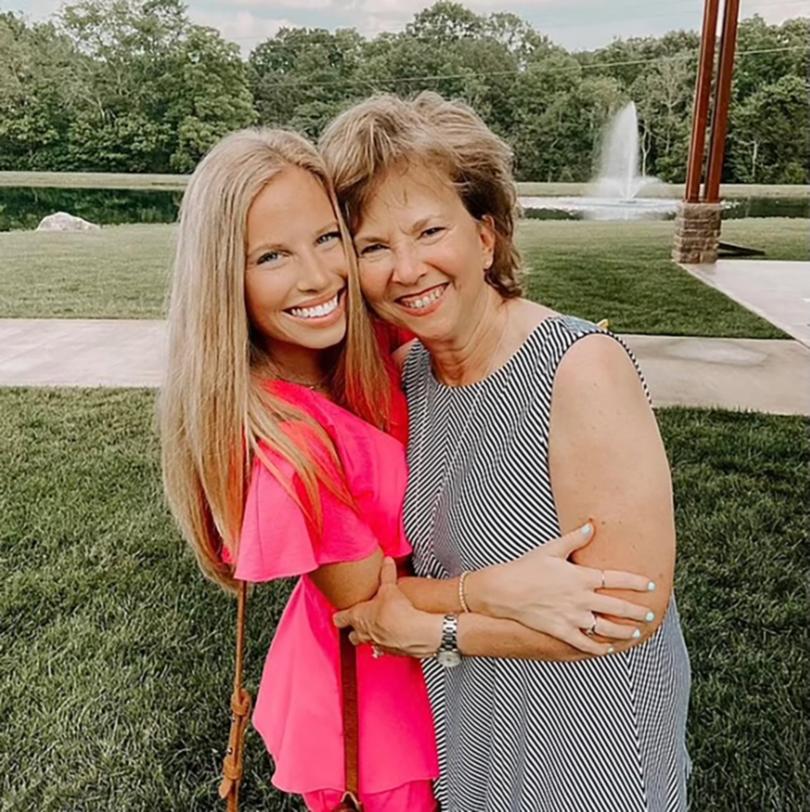Tennessee passes bill to let teachers carry guns, a year after mass shooting
A bill allowing teachers to carry concealed handguns in schools has been passed, one of the most divisive steps taken since six people were killed by a shooter at a Nashville school.

The Tennessee legislature passed a bill Tuesday that would allow teachers and school staffers to carry concealed handguns in schools, one of the most divisive steps taken by Republican leaders in the year since six people were killed by a shooter at a Nashville school.
The House approved the measure as protesters shouted objections, nearly drowning out the proceedings with chants of “Not one more kid!” At least one person was kicked out of the gallery by House Speaker Cameron Sexton (R).
The bill’s passage, following earlier approval by the state Senate, marked another turbulent moment in the state’s debate over firearms and school safety, as parents lobbying for gun-control measures again came up against the GOP supermajority.
Sign up to The Nightly's newsletters.
Get the first look at the digital newspaper, curated daily stories and breaking headlines delivered to your inbox.
By continuing you agree to our Terms and Privacy Policy.“This is our reaction to students and teachers being murdered in a school?” said state Rep. Bo Mitchell (D). “Our reaction is to throw more guns at it. What’s wrong with us?”
The push to arm school staffers is one of the most expansive pro-gun steps taken by the state since the shooting at the Covenant School in March 2023, when a former student killed three students and three adults. Lawmakers have not passed substantial restrictions on gun use since the killings; they have passed other measures, including one that requires resource officers, that they say will bolster school safety.
The Nashville tragedy set off a massive protest by Tennessee parents and others and ignited one of the fiercest debates over gun policy in a red state in recent years - one that culminated in the expulsion of two Black Democratic lawmakers and drew Republican women into gun-control activism. Tensions have repeatedly bubbled up at the state Capitol since then.
Senate leaders kicked a group of parents and advocates out of the gallery for protesting before the chamber’s April 9 vote. On April 15, about 250 Nashville high school students left class, according to a Moms Demand Action estimate, and marched to the Capitol.
On Tuesday, protesters chanted “Blood is on your hands” and “Vote them out” as lawmakers voted, creating a chaotic scene before state troopers asked them to leave the gallery. Rep. Justin Jones (D), one of the lawmakers who was expelled last year, was held out of order by his colleagues for filming with his phone on the floor.

Lawmakers in both parties expect Gov. Bill Lee (R) to sign the bill, they told The Washington Post. The governor’s office did not respond to a request for comment about Lee’s plans for the bill.
Under the legislation, the identities of school staffers who sign up to carry guns is known only to those who approve participants. That means parents would not be told whether their school opted into the program, whether anyone at their child’s campus is armed or whether their own child’s teacher has a gun in the classroom, lawmakers said. Parents also would not know whether their child’s teacher might leave the classroom to respond to a shooting during an attack.
Sen. Paul Bailey (R), who sponsored the bill in the Senate, said in response to Democratic lawmakers’ questions before the vote in that chamber that the confidentiality clause is “relative to the element of surprise.” Though many states allow teachers to carry guns in some capacity, just four have similar clauses, according to Giffords Law Center, which tracks firearm legislation.
State Republicans argued that arming staffers could deter shooters and would position a trained, authorized person in a school who could respond quickly to an attack. They predicted that some schools would use the law, probably in rural areas with fewer police resources, while any district that disliked it could ignore it.
“The legislation serves as another line of defense that would possibly ward off school intruders,” Bailey said in an interview before the House bill passed.
The House voted 68-28, after striking down various amendments proposed by Democrats and repeatedly warning spectators in the gallery to quiet down.
Critics said the bill - which passed a month after the first anniversary of the killings - ignored the opinions of teachers and parents who don’t want guns in schools; they accused the Republican supermajority of favoring this step over stricter firearm laws that polling shows a majority of Tennesseans support.
Those opponents objected not only to the idea of arming teachers, which they said introduced risk into classrooms and created a situation ripe for accidents or misuse, but also to the specifics of the measure. In a state with some of the most lax gun-control measures and highest gun violence rates, they say the most effective way to prevent more shootings is to limit the number of guns on campuses, not increase them.
“Teachers don’t go into the profession to learn how to shoot a gun and to confront a possible past student and possibly kill that student,” said Cathy Barnett, a retired teacher and volunteer with Moms Demand Action who was in the gallery during the House and Senate proceedings. “I didn’t go into teaching to shoot anyone.”
The Covenant shooting upended gun politics in Tennessee, as some conservatives newly called for firearm restrictions in a state that has been historically averse to passing them. After Lee signed an executive order to strengthen background checks, he broke with fellow Republicans in calling for red-flag laws and ordered the legislature to convene a special session on public safety.
Lawmakers declined to enact significant legislation, swatting away proposals to remove guns from mentally unstable individuals and passing more incremental measures.
The supermajority has left behind proposals that would require gun owners to lock up firearms and increase penalties for adults when children access guns and injure or kill someone. Lawmakers have approved measures to make gun manufacturers mostly immune from liability in crimes involving their guns and require the state to track firearm deaths and injuries.
The proposal to arm teachers came up last year but had stagnated until this month. A majority of states allows teachers to carry guns, usually with permission from the school district, though laws vary widely. It is unclear how many teachers participate, according to the Giffords Law Center.

The Tennessee bill would allow school staffers to carry only handguns, and only in schools whose top administrators have agreed. Teachers who wish to do so would be required to have gun permits, undergo a background check and mental health evaluation, and take 40 hours of training annually.
Those carrying guns would be liable if anything went wrong: Under the legislation, school districts and law enforcement agencies would be immune from any related claims of monetary damages, even if a teacher intentionally carried out a shooting or if a student was accidentally shot.
JC Bowman, executive director of Professional Educators of Tennessee, said his statewide professional association viewed the legislation as poorly thought out. He planned to encourage its members not to carry guns because of the liability concerns. He predicted that educators may shy away from it.
“I think school boards across the state are going to say no to it,” he said. “There’s so many things that could go wrong.”
The bill does not provide a framework for the state to track how many teachers are armed and where, lay out any protocol for dealing with a teacher-involved shooting or establish requirements for storage of guns. Democrats also questioned whether the training would be enough to equip a teacher to confront a gunman who has a semiautomatic weapon.
Bailey, the Senate sponsor, said bearing the liability would help ensure that only staff members who are prepared for that responsibility would apply. He said he had no estimate of how many teachers or districts might participate.
“There’s a very low probability that even one-tenth of 1 percent [of teachers] would do this,” said House sponsor Rep. Ryan Williams (R) during floor debate Tuesday.
Barbara Sloan, a 21-year-old aspiring teacher, disagreed. Bringing guns into schools only adds risk, said the Vanderbilt University junior and volunteer with gun-control group Students Demand Action.
Sloan, who works in a second-grade classroom as part of her studies, said she would be reluctant to continue her career path if school staffers were armed.
“We’re all very tired of having to convince people to see us as more than human shields,” she said.
© 2024, The Washington Post
